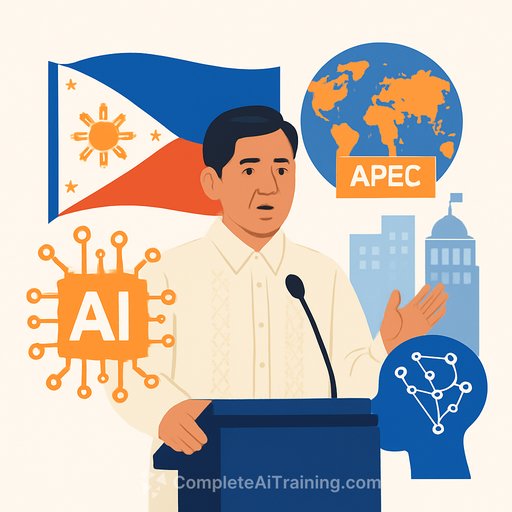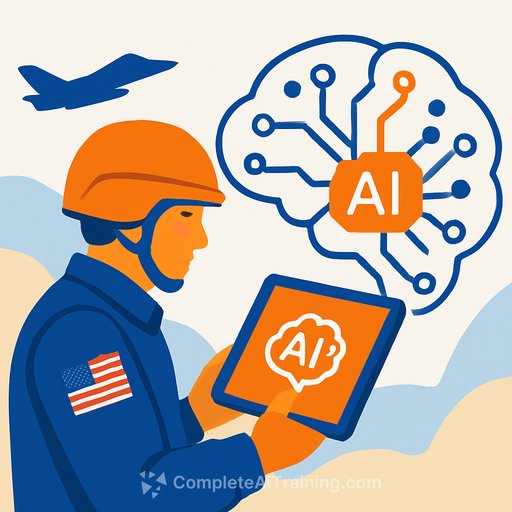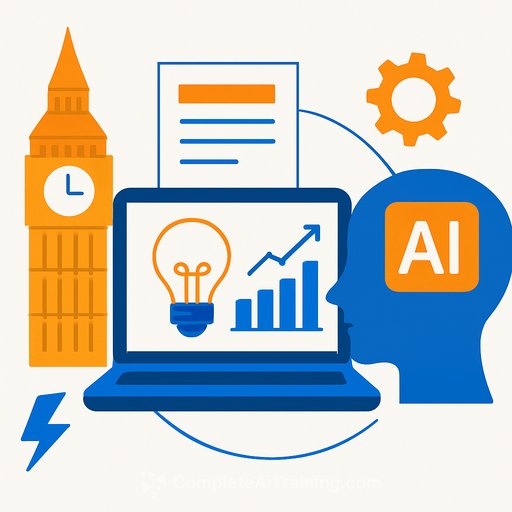Philippines to Fast-Track AI Across Government After APEC Summit
President Ferdinand R. Marcos Jr. said the government will integrate AI into operations "as much as we can, as soon as we can," following the 2025 APEC Summit in Gyeongju, South Korea. He warned that waiting is a risk: "AI is going to come - parang alon 'yan. Kahit anong gawin mo, mababasa ka. And if you don't learn how to swim, ma-iiwanan ka talaga."
AI dominated APEC sessions and bilateral talks, with leaders agreeing on both the upside and the risks. "What AI can do one month ago is different from what AI will be able to do one month from now," he said. The signal is clear: move fast, but with guardrails.
The summit culminated in the Gyeongju Declaration backing the APEC AI Initiative, a regional framework for human-centered, safe, and inclusive AI-driven growth. For government operations teams, this sets the tone for near-term adoption with clear accountability.
What This Means for Government Operations
- Stand up an AI program office with defined roles (policy, engineering, data governance, procurement, risk). Give it executive backing and delivery targets.
- Prioritize 5-7 practical use cases with measurable outcomes: case triage, citizen chatbots, translation, document summarization, permit processing, fraud detection, contact center augmentation.
- Start with data. Inventory high-value datasets, classify sensitivity, set data-sharing rules, and fix data quality issues before model deployment.
- Build guardrails: clear ethics policy, human-in-the-loop for critical decisions, DPIAs, model evaluation standards, and red-teaming for misuse.
- Modernize procurement: pre-qualify vendors/models, require model cards, security attestations, uptime SLAs, and exit clauses.
- Secure by default: access controls, encryption, logging, and privacy-by-design for any system touching PII or citizen records.
- Change management: role-based training, job redesign, and a plan for unions/HR to address workload shifts and new competencies.
- Run 90-day pilots with a fixed brief, then scale what works. Kill what doesn't. Publish results to build public trust.
Policy and Governance Priorities
- Align with regional direction set by APEC on safe, human-centered AI. See APEC's initiatives for context: APEC.
- Anchor ethics and risk practices in widely adopted principles such as the OECD AI Principles (transparency, accountability, safety, fairness).
High-Impact Use Cases You Can Deploy Now
- Citizen services: multilingual chat assistants for FAQs, status checks, and appointment booking; automated document checks for permits and benefits.
- Operations: summarization of case files, transcription and analysis of hearings, workload forecasting, and smart routing.
- Integrity and compliance: anomaly detection in procurement and benefits, record deduplication, and policy compliance checks.
- Infrastructure and field work: predictive maintenance for transport and utilities, geospatial analysis for planning and disaster response.
Build Trust While Moving Fast
- Explainability: publish model purpose, data sources, and limitations in plain language.
- Privacy: restrict training on sensitive data; use synthetic data or federated approaches where needed.
- Quality: evaluate models against agreed metrics (accuracy, bias, latency, cost per request). Keep an audit trail for decisions.
- Escalation paths: make it easy for citizens and staff to appeal AI-assisted outcomes.
90-Day Government AI Action Plan
- Week 1-2: Appoint a lead, define governance, and publish a short AI policy with do/don't rules.
- Week 2-4: Choose top three use cases with clear KPIs (cycle time, cost per case, satisfaction, accuracy).
- Week 4-6: Secure data access, privacy controls, and vendor/model shortlist. Set evaluation benchmarks.
- Week 6-12: Build pilots, run UAT with frontline staff, monitor results, and prepare a scale-up plan.
- Ongoing: Quarterly reviews, risk audits, and public reporting on outcomes and safeguards.
Skills and Capacity
Upskilling is the bottleneck. Map roles to skills (prompting, evaluation, governance, data stewardship) and provide targeted training. If you need structured options, explore practical role-based programs: AI courses by job role.
Bottom Line
The message from Busan and Gyeongju is straightforward: move quickly, but be deliberate. Integrate AI where it cuts delays, reduces backlog, and improves citizen experience - and put governance in place from day one. Waiting has a cost; speed with safeguards is the path forward.
Your membership also unlocks:









